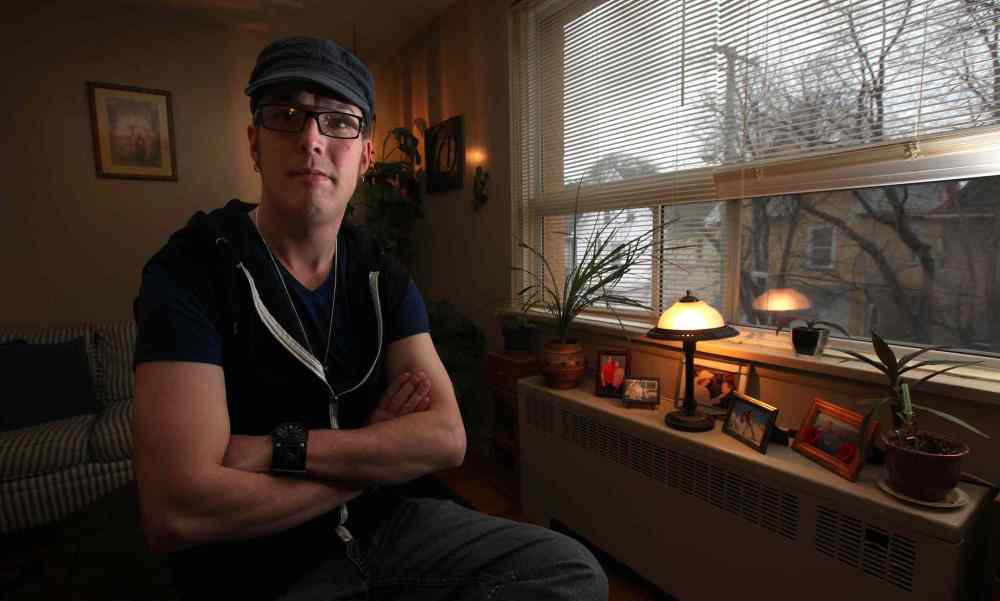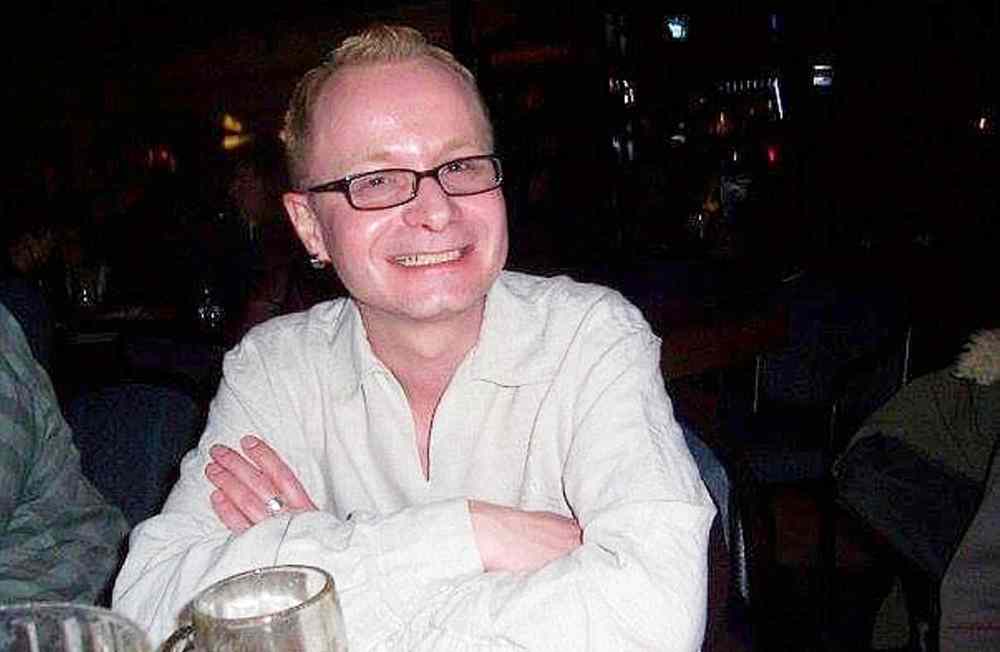Helping those who’ve lost loved ones to violence
Homicide bereavement group offered free to participants
Advertisement
Read this article for free:
or
Already have an account? Log in here »
To continue reading, please subscribe:
Monthly Digital Subscription
$0 for the first 4 weeks*
- Enjoy unlimited reading on winnipegfreepress.com
- Read the E-Edition, our digital replica newspaper
- Access News Break, our award-winning app
- Play interactive puzzles
*No charge for 4 weeks then price increases to the regular rate of $19.00 plus GST every four weeks. Offer available to new and qualified returning subscribers only. Cancel any time.
Monthly Digital Subscription
$4.75/week*
- Enjoy unlimited reading on winnipegfreepress.com
- Read the E-Edition, our digital replica newspaper
- Access News Break, our award-winning app
- Play interactive puzzles
*Billed as $19 plus GST every four weeks. Cancel any time.
To continue reading, please subscribe:
Add Free Press access to your Brandon Sun subscription for only an additional
$1 for the first 4 weeks*
*Your next subscription payment will increase by $1.00 and you will be charged $16.99 plus GST for four weeks. After four weeks, your payment will increase to $23.99 plus GST every four weeks.
Read unlimited articles for free today:
or
Already have an account? Log in here »
Hey there, time traveller!
This article was published 02/04/2015 (3870 days ago), so information in it may no longer be current.
MICHAEL Cook belongs to an exclusive group he never wanted to join: Winnipeg’s Homicide Bereavement Therapeutic Group.
Cook meets weekly with others who’ve lost a loved one to violence.
Last year, he lost Kerry McGill, his estranged partner he’d known for 15 years.

Cook found out about McGill’s death when he returned from a trip to a friend’s cabin near Belmont, Man., where McGill grew up.
“I took some pictures of his hometown and emailed them to him: ‘Look where I was!’ ” Cook recalled. When his friend who had moved to Edmonton didn’t respond, he became worried and tried phoning him. He went on Facebook and found a page dedicated to McGill’s memory.
“It was devastating. Shocking,” said the 38-year-old.
McGill was 42 when he was found dead inside his downtown Edmonton apartment on July 8. Aaron Mullins, 28, later turned himself in to police and was charged with manslaughter and a weapons offence.
“It was a case of him trying to help someone who kept using him over and over,” Cook said.
The cause of McGill’s death has not been made public. Cook said he didn’t want to know what happened but later learned some of the details of McGill’s violent death.
“I kept having nightmares when I found out what happened,” he said. “I was still in shock. I didn’t realize it. I just kept myself busy with work and friends. Then all of a sudden I went away to a friend’s cabin and I had all this time on my hands.”
He thought his shock from McGill’s homicide had worn off until November.
“In one split second I absolutely lost it — I tried to take my own life.”
He’d been drinking and looking at photos of McGill on Facebook and overdosed on sleeping pills. A friend on Facebook called for help. His mom called an ambulance and Cook was taken to the hospital.
“I felt completely hopeless — I thought I’m going to have to live in that state forever,” Cook said.
“That was not the proper way to grieve. Three days later I found out about the support group.”
The Homicide Bereavement Therapeutic Group meets once a week for 12 weeks and is run by the Aurora Family Therapy Centre at the University of Winnipeg.
“I can talk to people who understand the situation,” he said. “It’s a totally different thing than someone passing away from cancer, the grief you feel.”
Only someone who’s lost a loved one to homicide really knows what you’re feeling, Cook said.
“I’m not going to say I can forgive this person. Right now, I’m angry.”

He shares his anger with the group.
“I’m in a situation with people who know exactly what I’m talking about… You get feedback from people who’ve been through it.”
It’s a different story outside the group.
“Some people avoid it or me because they don’t want to discuss it. Or they feel I should be moving forward in my own life. I am trying my darndest to move forward.”
The landscaper and cleaner has to force himself to get out of his apartment. He said he has issues trusting people and fights the urge to isolate himself. He said he’s getting individual counselling as well as attending the bereavement sessions.
“Trauma has affected their lives and they want to get them back,” said the program’s spiritual adviser, Albert McLeod.
He can relate personally to the participants. His father died after being shot while working as a conservation officer in Cormorant, Man., in the 1960s. McLeod was only eight years old.
During the AIDS epidemic, McLeod lost friends to the disease and suffered survivor’s guilt.
“People need a community network of support to help them through this,” said Kevin MacDonald, a family therapist and former clergyman who runs the program.
“Their memory of the person they lost is dominated by the death. It’s such a traumatic death, they’re stuck there. They kind of lose touch with the whole person.”
Near the end of the 12-week program, participants are asked to commemorate their loved one, focusing on their life rather than their death. They’re asked to bring in the person’s favourite meal, their favourite music, other family members to reminisce or prepare a multimedia presentation.
“It’s to help them bring back the whole life of the person.”
carol.sanders@freepress.mb.ca

Carol Sanders
Legislature reporter
Carol Sanders is a reporter at the Free Press legislature bureau. The former general assignment reporter and copy editor joined the paper in 1997. Read more about Carol.
Every piece of reporting Carol produces is reviewed by an editing team before it is posted online or published in print — part of the Free Press‘s tradition, since 1872, of producing reliable independent journalism. Read more about Free Press’s history and mandate, and learn how our newsroom operates.
Our newsroom depends on a growing audience of readers to power our journalism. If you are not a paid reader, please consider becoming a subscriber.
Our newsroom depends on its audience of readers to power our journalism. Thank you for your support.

